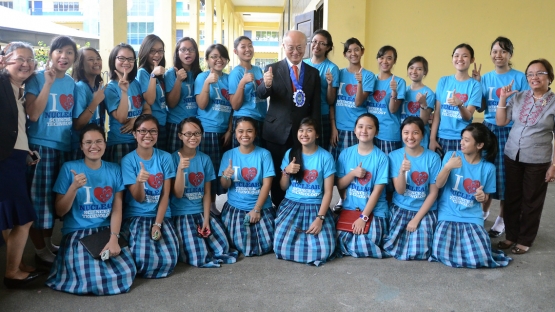Science is one of the cornerstones of economic progress and without technological advancement human development goals are much harder to achieve, said IAEA Director General Yukiya Amano yesterday.
Mr Amano spoke to students during a visit to a high school that benefits from an IAEA programme to raise the interest of students in nuclear science and technology. He spoke about the importance of science and technology for development, noting that nuclear science is making an important contribution in a wide range of fields including human health, water management, agriculture, the environment and industry. "Science is the basis of the future not only for your country, but also for individuals such as yourselves," he told the students and encouraged them to persevere in their studies and keep up their interest in science.
The Philippines is one of four countries piloting the use of the Compendium of Resources and Activities for Secondary School Teachers and Students on Nuclear Science and Technology developed by the IAEA. 450 students, aged 14 to 16, in two high schools in metropolitan Manila are participating in the programme. The programme is also running in Indonesia, Malaysia and the United Arab Emirates.
The Philippines is the fourth stop on the Director General's five-country tour of Southeast Asia. Mr Amano met with Secretary of Science and Technology Mario Montejo and Undersecretary of Research and Development Amelia Guevara. He also visited the laboratories of the Philippine Nuclear Research Institute (PNRI).


